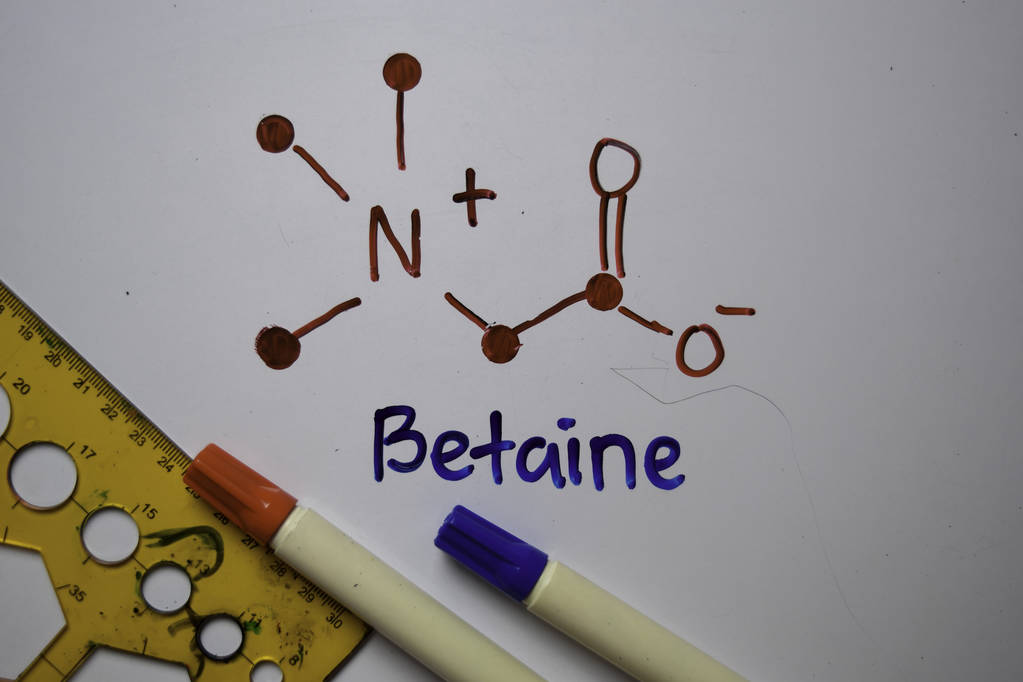Discover the incredible benefits of betaine for your skin as explained by dermatology experts.
The Powerful Effects of Betaine on Skin – Explained by Dermatology Experts
In the world of skincare, there’s always a new ingredient making waves and promising to transform our skin into a radiant masterpiece. While some come and go like fleeting trends, others stick around because they truly deliver. One such ingredient that has been causing a stir lately is betaine.

The Science Behind Betaine
Before we dive into the skin benefits of betaine, let’s first understand what this magical ingredient is all about. Betaine is a naturally occurring compound that can be found in a variety of sources such as beets, spinach, and even certain seafood.
But what exactly does betaine do? Well, it turns out that this humble compound has some pretty exciting properties. It acts as a humectant, meaning it helps to attract and retain moisture in the skin. This hydration boost can work wonders for anyone struggling with dry, dehydrated skin.
In addition to its hydrating powers, betaine also acts as an osmolyte. Now, I know what you’re thinking – “What on earth is an osmolyte?” Don’t worry, it’s not as complicated as it sounds. Essentially, osmolytes are substances that help cells maintain their proper balance and function, even in stressful conditions. So, in skincare terms, betaine can help your skin stay resilient and protected, no matter what life throws at it.
But let’s delve a little deeper into the science behind betaine. How does it actually work its magic on our skin? Well, betaine has a unique molecular structure that allows it to attract water molecules and form hydrogen bonds. These bonds help to lock in moisture, keeping your skin plump, supple, and well-hydrated.
Moreover, betaine also has the ability to strengthen the skin’s natural barrier function. It does this by regulating the production of ceramides, which are essential lipids that help to maintain the integrity of the skin’s protective barrier. By promoting the production of ceramides, betaine helps to fortify the skin, making it more resilient to environmental stressors and reducing the risk of moisture loss.
Understanding the Role of Betaine in the Body
Now that we have a basic understanding of betaine, let’s explore its role in the body. Internally, betaine plays a crucial role in various bodily functions. It’s involved in the synthesis of neurotransmitters, helps break down homocysteine (an amino acid that can be harmful in excess), and supports liver health.
But why should we care about all this internal mumbo jumbo when we’re here to talk about skincare? Well, it turns out that what’s good for the inside is often good for the outside too. When we give our bodies the nutrients they need to function optimally, it’s reflected in our skin’s health and appearance.
So, by incorporating betaine into our skincare routine, we’re not just pampering our outermost layer of skin; we’re also giving our bodies a boost from the inside out.
But let’s not forget about the other benefits of betaine. Did you know that betaine has been found to have antioxidant properties? Antioxidants are substances that help protect our cells from damage caused by free radicals, which are unstable molecules that can wreak havoc on our skin and accelerate the aging process. By neutralizing free radicals, betaine helps to keep our skin looking youthful and radiant.
Furthermore, betaine has been shown to have anti-inflammatory properties. Inflammation is a common underlying factor in many skin conditions, such as acne, eczema, and rosacea. By reducing inflammation, betaine can help calm irritated skin and promote a more balanced complexion.
So, the next time you come across a skincare product that contains betaine, remember that it’s not just a simple ingredient. It’s a multitasking powerhouse that can hydrate, protect, strengthen, and rejuvenate your skin, all while promoting overall health and well-being.
Unlocking the Skin Benefits of Betaine
Now that we’ve covered the science behind betaine, it’s time to dig deeper into its specific skin benefits. Prepare to be amazed!
How Betaine Can Improve Your Skin Health
One of the most remarkable things about betaine is its ability to moisturize the skin like no other. Thanks to its humectant properties, betaine attracts moisture from the atmosphere and locks it into your skin, keeping it plump and hydrated.
But that’s not all. Betaine also has anti-inflammatory properties, which can help calm irritated and inflamed skin. Whether you’re battling pesky breakouts or dealing with redness and sensitivity, betaine can come to the rescue and bring some much-needed relief.
Furthermore, betaine has been shown to strengthen the skin’s moisture barrier. This protective layer is essential for keeping out harmful environmental pollutants and keeping in all that precious hydration. By fortifying this barrier, betaine can help prevent moisture loss and maintain the ideal balance of oils and hydration.
Let’s delve even deeper into the moisturizing power of betaine. When applied topically, betaine forms a thin film on the skin’s surface, acting as a protective shield against external aggressors. This film not only locks in moisture but also helps to prevent the evaporation of water from the skin, ensuring long-lasting hydration.
Moreover, betaine’s moisturizing effects go beyond the surface level. It has the ability to penetrate deep into the skin’s layers, reaching the underlying cells and providing hydration from within. This deep moisturization helps to improve the overall health and appearance of the skin, leaving it soft, supple, and radiant.
In addition to its moisturizing prowess, betaine is also a potent antioxidant. This means it can neutralize harmful free radicals that can cause premature aging and damage to the skin. By reducing oxidative stress, betaine helps to maintain a youthful complexion and minimize the appearance of fine lines and wrinkles.
Furthermore, betaine’s anti-inflammatory properties extend beyond soothing irritated skin. It can also help to reduce redness and swelling associated with skin conditions such as eczema and rosacea. By calming inflammation, betaine promotes a more even skin tone and a healthier complexion.
Another fascinating benefit of betaine is its exfoliating properties. It gently sloughs away dead skin cells, revealing a fresher and brighter complexion. This gentle exfoliation helps to improve skin texture and unclog pores, reducing the likelihood of breakouts and promoting a smoother skin surface.
Lastly, betaine has been found to stimulate collagen production in the skin. Collagen is a protein that provides structure and elasticity to the skin. As we age, collagen production naturally declines, leading to sagging and wrinkles. By boosting collagen synthesis, betaine helps to maintain the skin’s firmness and elasticity, resulting in a more youthful and lifted appearance.
Decoding Cocoamidopropyl Betaine and Betaine
Now, let’s address a common source of confusion – the difference between cocoamidopropyl betaine and betaine. While they may sound similar, these two ingredients have distinct profiles and uses.
Exploring the Differences Between Cocoamidopropyl Betaine and Betaine
Cocoamidopropyl betaine, often found in cleansing products like shampoos and body washes, is derived from coconut oil and betaine. It acts as a surfactant, helping to create a luxurious lather and cleanse away dirt and impurities.
But let’s dive deeper into the world of cocoamidopropyl betaine. Did you know that this ingredient has been used in personal care products for decades? Its popularity stems from its ability to effectively remove dirt and excess oil without stripping the skin or hair of its natural moisture. This makes it a favorite among those with sensitive skin or dry hair.
Furthermore, cocoamidopropyl betaine has a unique molecular structure that allows it to act as a conditioning agent as well. This means that not only does it cleanse, but it also helps to soften and smooth the hair or skin, leaving it feeling silky and nourished.
Now, let’s shift our focus to betaine. In its pure form, betaine is primarily used in skincare for its hydrating and skin-soothing properties. It is derived from sugar beets and is known for its ability to attract and retain moisture in the skin.
But did you know that betaine has a long history of use in traditional medicine? It has been used for centuries in various cultures for its healing properties. In fact, betaine was originally discovered in sugar beets in the 19th century and has since found its way into the world of skincare.
When applied topically, betaine forms a protective barrier on the skin, helping to lock in moisture and prevent dehydration. This makes it a valuable ingredient in moisturizers, serums, and other skincare products designed to hydrate and nourish the skin.
So, while they both share the betaine name and offer their own unique benefits, cocoamidopropyl betaine and betaine serve different purposes in the world of skincare. Cocoamidopropyl betaine is a versatile cleanser and conditioner, while betaine is a powerful hydrator and skin-soother.
Debunking the Safety Concerns of Betaine

Now, before we wrap up this enlightening journey into the world of betaine, let’s address any lingering safety concerns you may have.
Rest assured, betaine is generally considered safe for use in skincare products. It has a low risk of causing irritation or allergic reactions, making it suitable for even the most sensitive of skin types. The safety of betaine has been extensively studied and evaluated by regulatory bodies such as the Food and Drug Administration (FDA) and the Cosmetic Ingredient Review (CIR) Expert Panel.
One of the reasons betaine is considered safe is its natural origin. It is derived from sugar beets, which are widely cultivated and used in food production. This natural source ensures that betaine is free from harmful chemicals and contaminants that could potentially harm the skin.
Furthermore, betaine has been used in skincare products for many years without any major safety concerns. It has a long history of use in the cosmetic industry and has been proven to be well-tolerated by the skin. Numerous studies have demonstrated its safety profile, making it a trusted ingredient in the formulation of various skincare products.
However, as with any new skincare ingredient, it’s always a good idea to perform a patch test before fully incorporating betaine into your routine. This simple test involves applying a small amount of the product containing betaine to a small area of your skin, usually on the inner forearm. Leave it on for 24 to 48 hours and observe for any signs of redness, itching, or irritation. If no adverse reactions occur, you can confidently include betaine in your skincare regimen.
Additionally, it’s worth noting that betaine offers various benefits beyond its safety profile. It is known for its moisturizing properties, helping to hydrate and nourish the skin. It also acts as a humectant, attracting and retaining moisture to keep the skin plump and supple. With regular use, betaine can contribute to a healthier and more radiant complexion.
So go ahead and embrace the power of betaine. Let your skin drink in the benefits of this incredible compound, and get ready to glow like never before!






[…] of relying on animal-derived substances like lanolin, beeswax, or keratin, Amika harnesses the power of plants to create effective hair care solutions. They carefully select botanical extracts, oils, and proteins that nourish and […]
[…] body washes, and facial cleansers. It is known for its ability to create a rich lather and effectively remove dirt and oil from the skin and […]
[…] sugar beets. Yes, that’s right! The same stuff that sweetens your favorite desserts has the power to transform your skin into a golden […]